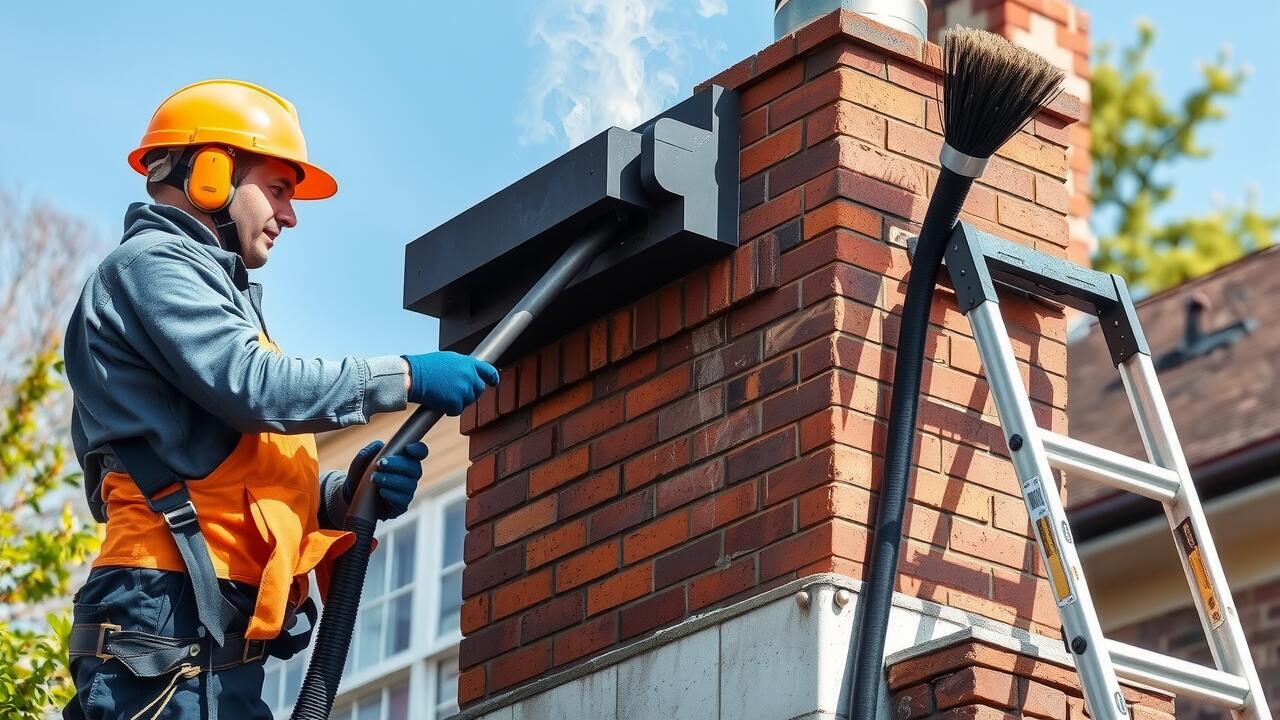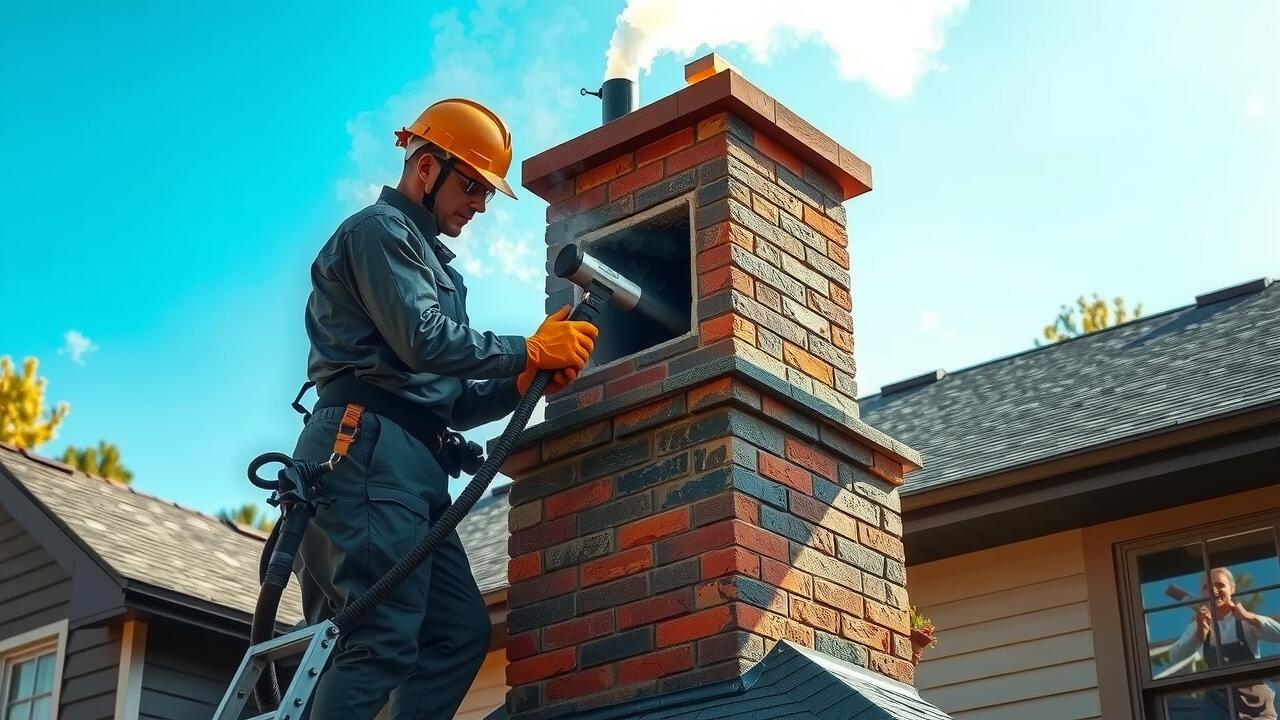
Table Of Contents
Benefits of Hiring a Professional
Hiring a professional for chimney cleaning comes with significant advantages. Experts possess the training and experience necessary to identify issues that an average homeowner might overlook. Their thorough knowledge of local codes and safety regulations ensures that the cleaning process is compliant and effective. This expertise reduces the risk of chimney-related fires and other hazards, providing peace of mind for families.
Additionally, professionals utilize specialized tools to ensure proper cleaning and inspection of the entire chimney system. These equipment pieces can reach areas that might be difficult for a DIY enthusiast to access safely. Routine professional cleaning can also help extend the life of the chimney, saving homeowners money on more extensive repairs down the line. The investment in professional services often pays off in terms of increased safety and improved efficiency.
Expertise and Safety
When it comes to chimney cleaning, hiring a professional ensures that the job is done with the expertise necessary for thorough results. Professionals are trained to recognize potential hazards that could be overlooked by an untrained eye. They can identify issues like creosote buildup or structural damage while providing solutions that adhere to safety standards.
Safety is another crucial factor in professional chimney cleaning. Climbing onto a roof or working with specialized tools poses risks for those without experience. A professional team utilizes the proper equipment and safety protocols, which minimizes accidents and injuries. Their knowledge of both cleaning techniques and safety practices protects not only the chimney but also the occupants of the home.
DIY Chimney Cleaning Tips
Chimney cleaning is an essential maintenance task that homeowners can tackle with the right tools and techniques. Before starting, ensure you have a sturdy ladder, a chimney brush specifically designed for your flue type, and a dust mask to protect against soot and debris. A drop cloth can help keep your workspace tidy, preventing soot from scattering to the surrounding areas. Start at the top of the chimney, working the brush down through the flue to dislodge any creosote buildup. Safety goggles will protect your eyes from falling debris.
After completing the initial cleaning, inspect the chimney for any cracks, blockages, or signs of deterioration. Pay attention to the chimney cap; it should be clear of debris to allow for proper ventilation. You can also use a vacuum designed for ash and soot to clean up the mess created during the chimney cleaning process. Regular inspections and cleaning can significantly extend the life of your chimney and improve the safety and efficiency of your fireplace or heating system.
Essential Tools and Techniques
Chimney cleaning requires specific tools to be effective and safe. A chimney brush is essential for removing soot and creosote buildup from the flue. Various sizes and types of brushes are available, so it’s crucial to select one that fits your chimney’s dimensions. Additionally, a sturdy extension pole can help reach the upper sections of tall chimneys, ensuring complete cleaning. Safety goggles and a dust mask are also important to protect against debris and harmful particles during the process.
In addition to brushes, having a sturdy vacuum specifically designed for chimney cleaning can help manage the mess created during the job. This type of vacuum is designed to handle the fine soot and ash that accumulate, preventing it from spreading throughout your home. A flashlight is useful for inspecting the chimney after cleaning to ensure no debris remains. Having these tools on hand can make the chimney cleaning process more efficient and effective, allowing for thorough maintenance and improved chimney health.
The Impact of Weather on Chimney Health
Weather conditions play a significant role in the overall health of a chimney. Rain can lead to water infiltration, which poses a risk of rusting metal components and deteriorating masonry. Snow accumulation can also cause blockages and increase moisture inside the chimney, potentially leading to mold growth. These factors highlight the need for regular chimney cleaning to prevent long-term damage and ensure proper ventilation.
Furthermore, fluctuating temperatures can create a cycle of freezing and thawing, exacerbating any existing weaknesses in chimney materials. This cycle can cause cracks and gaps, allowing more moisture to enter. Homeowners should be aware of how severe weather can impact their chimney’s integrity and prioritize regular inspections and cleaning to maintain safety and efficiency during colder months.
Rain and Snow Damage
Rain and snow can significantly impact the health of a chimney. Water can penetrate cracks and crevices, leading to structural damage over time. When moisture seeps into materials, it can cause them to expand and contract with temperature fluctuations. This cycle contributes to deteriorating mortar joints and masonry, which can lead to costly repairs. Regular chimney cleaning can help identify these issues early, preventing further damage.
Furthermore, ice accumulation can be particularly problematic. When temperatures drop, any water that has infiltrated the chimney may freeze, pushing against the interior walls and leading to additional cracks. This not only compromises the chimney’s effectiveness but can also pose a fire hazard due to blockages. Addressing these weather-related concerns through regular inspections and chimney cleaning is essential to maintain both safety and functionality.
FAQS
How often should I have my chimney professionally cleaned?
It is generally recommended to have your chimney professionally cleaned at least once a year, especially if you use your fireplace regularly during the colder months.
Can I clean my chimney myself?
Yes, you can clean your chimney yourself, but it requires the right tools and techniques. However, for safety and thoroughness, hiring a professional is often the best option.
What are the signs that my chimney needs cleaning?
Signs that your chimney needs cleaning include a strong, smoky smell, visible soot buildup, or if you notice a decreased draft when using your fireplace.
Does weather affect how often I need to clean my chimney?
Yes, weather can impact chimney health. Rain and snow can cause creosote buildup and damage, which may necessitate more frequent cleaning.
What tools do I need for DIY chimney cleaning?
Essential tools for DIY chimney cleaning include a chimney brush, extension rods, a vacuum, and protective gear such as gloves and goggles.


